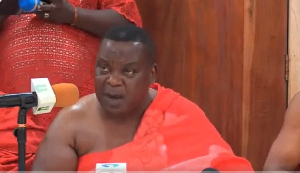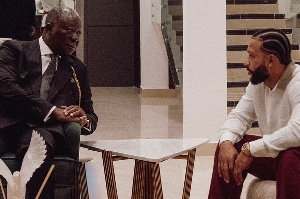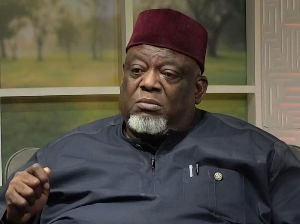The Democratic Republic of Congo confirmed the presence of the Indian coronavirus strain on its territory as five cases of the variant have been reported in Kinshasa.
Nonetheless, the Minister of Health Jean-Jacques Mbungani Mbanda urges the Congolese to remain calm.
"Among the 25 positive cases, there are five Indian variants, the result of a double mutation of the British variant and the South African variant. But the situation is calm, at the clinical level, there is also no fear, so the population should be reassured because all measures have been taken."
In the meantime, the country announced at the end of April that it had "redeployed" 1.3 million "surplus" AstraZeneca vaccines to five neighbouring countries. The health ministry admitted that some sections of the population had simply refused to have the jab.
The rest of Africa is watching aghast as India struggles with coronavirus, fearing a long-running shortfall in the Indian-made vaccines that it needs to help shield its people.
Often dubbed the "world's pharmacy", India is one of the biggest suppliers of the AstraZeneca vaccine under the Covax programme to help immunisation in poorer countries.
But India has been hammered by an explosive growth in infections -- accelerated, say scientists, by a new variant.
The country has recorded 22 million cases out of a population of 1.3 billion, inflicting a death toll of nearly a quarter of a million.
After sending more than 60 million doses abroad, India announced at the end of March that it was delaying overseas supplies as it works to meet its own needs.
It was a lonely battle last October when South Africa and India first proposed a temporary waiver on COVID patents. Since then, more than 100 countries have joined the proposal -- and today the Biden administration gave the crucial support of the United States. https://t.co/20TeqvtUxz
— Geoffrey York (@geoffreyyork) May 5, 2021
India and South Africa last year requested for the upliftment of patent rights of vaccine as a way of boosting manufacturing and ensuring the world is supplied. But the european union is still sceptical about the usefulness of waving patent rights to COVID-19 vaccines.#COVID
— Devanshi Samnotra (@DSamnotra) May 9, 2021
African Union (AU) health ministers held emergency talks online on Saturday to discuss the vaccine gap.
"The vaccines situation is extremely complex now because of the situation in India," said Cameroonian virologist John Nkengasong, director of the Africa Centres for Disease Control and Prevention, the AU's health watchdog.
"We are hoping that there will be a continuous supply of vaccines through Covax from India, but we are watching in total horror and disbelief what is going on in India and we don't expect that vaccines will be shipped out of India anytime soon."
The continent continues to navigate the third wave of the pandemic. Now it appears that one of the main challenges is a limited oxygen supply.
Nigerian doctor Ibukun Tunde-Oni who is also the founder of Private MD, shares his insight into the matter.
"The oxygen supply, basically right, in government hospitals isn't enough compared to the demand. So there's an increase in demand because of the second wave. So there are more people who have COVID right? and require oxygen to survive."
Yesterday @LeoVaradkar stated the following in relation to the #TRIPSwaiver - “very few countries in the global south have the infrastructural know-how or the materials to make those vaccines." We wish to share the following to add to this debate-THREADhttps://t.co/QtOGuZSPEK
— Oxfam Ireland (@OxfamIreland) May 7, 2021
Of all the continents, Africa has been relatively spared the worst of the pandemic so far with just over 124,000 deaths officially recorded for 4.6 million cases.
On the other hand, Africa has overcrowded cities, with slums that are a breeding ground for the virus, and a fragile health infrastructure -- risk factors that also feature prominently in India's tragic experience.
The continent has administered 19.6 million doses or just 2% of the global total -- according to the World Health Organization (WHO). 80% of the vaccine doses administered worldwide have been carried out by nations perceived to have more financial affluence.
Not yet having organised their countries to locally manufacture coronavirus vaccines in bulk, African countries have so far had to turn to the open market or the COVAXscheme.
The AU's African Vaccine Acquisition Task Team (AVATT) hopes to acquire vaccines through its own programme by the end of July or early August, and Nkengasong said that while he hoped that date could be brought forward he could make no guarantees.
- Maintain guard -
Nkengasong said he did not expect the vaccine market to open up again until the third quarter, and urged African leaders to adjust their strategy accordingly.
When I say the US should do more to vaccinate the world, someone always says ‘do these countries even have the cold storage capacity for these vaccines?!?!’
— Craig Spencer MD MPH (@Craig_A_Spencer) May 4, 2021
A reminder that Congo, Burundi and South Sudan all used Ebola vaccine at -70C. Long before Covid.https://t.co/uJGcTGqdpW
The virus variant wreaking havoc in India has already been detected in several African countries, notably Kenya, South Africa and Uganda.
Nkengasong pushed for a three-pronged strategy -- step up testing; improve prevention through awareness programmes; and boost supplies of vaccines and oxygen.
WHO chief Tedros Adhanom Ghebreyesus pleaded with African countries to maintain the utmost vigilance until the vaccine crunch is resolved.
"What's happening now in many other parts of the world can happen in our Africa if we let down our guard," he told the AU meeting.
"In many countries, the emergence of rapidly spreading variants, combined with premature easing of public health and social measures and the inequitable distribution of vaccines is having tragic consequences."
So according to the much celebrated global media outlets, the Corona variants are Brazil variant, South Africa variant, UK variant, India variant and so on, but the original virus is just Covid. Not Chinese. Let that sink in.
— Yashwant Deshmukh ???????? (@YRDeshmukh) May 10, 2021
Well played China. Well played.
The AU ministerial meeting in the meantime urged strict respect of social distancing guidelines in a continent where there is some resistance to vaccines.
In some perceived-rich countries, the problem of vaccine under-supply is starting to switch to one of a surplus of vaccines that are least popular with the public.
"The inequitable distribution of vaccines is not just moral outrage. It's also economically and epidemiologically self-defeating," Tedros said scathingly.




















